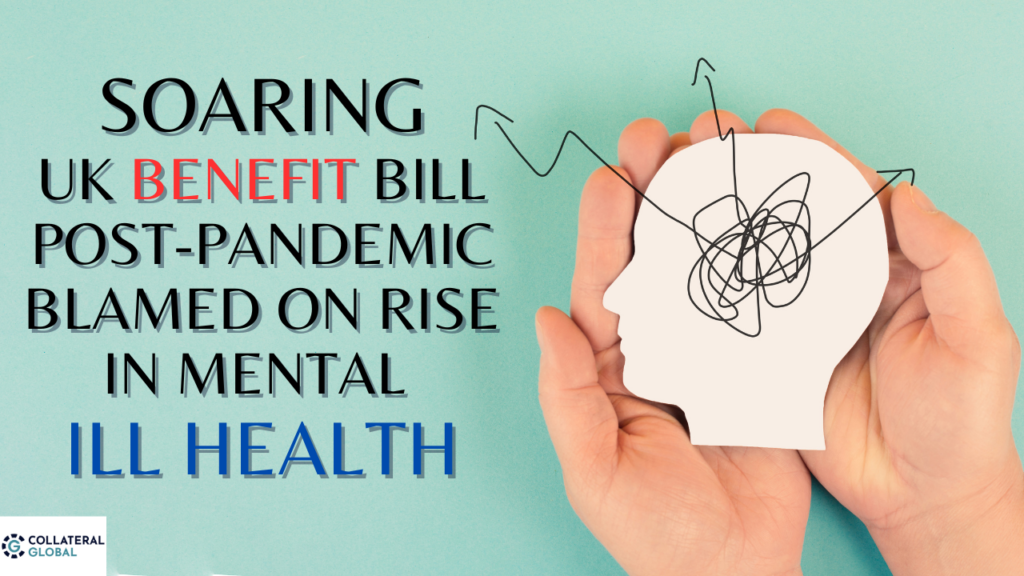Soaring UK benefit bill post-pandemic blamed on rise in mental ill health
The number of working-age people who claim health-related benefits in the UK has risen by almost forty percent to 3.9 million since the Covid pandemic, a new report shows.

The study, carried out by the Institute for Fiscal Studies (IFS) discovered every local authority in England and Wales bar one saw a rise in claims since the pandemic, bringing the number on sickness benefits up 38 per cent in four years. It found Britain is almost unique among wealthy countries in experiencing such a post-pandemic surge in sickness. A record 2.8 million people are now out of work because of long-term sickness. This is expected to hike the benefits bill to £63 billion by the end of the parliament, a rise of almost £30 billion on pre-pandemic levels.
IFS research economist Eduin Latimer said:
“The recent rise in health-related benefit claims is creating a fiscal headache for the Government and, of course, is a bad sign about population health.”
He added:
“Figuring out what is behind the recent rise must surely be a top priority for the Government if it is going to be able to respond appropriately.”
The study, funded by the Joseph Rowntree Foundation (JRF) and The Health Foundation, discovered a spike in claims from younger people, particularly for mental health conditions, with 37 percent of new claims linked to mental health. The number of new disability benefit awards made to under-40s has grown by 150 percent from 4,500 a month in 2019–20 to 11,500 in 2023–24. The growth for 40 to 64-year-olds was 82 percent, from 11,000 a month to 20,000.
A UK Government spokesperson said:
“This is another example of the dire inheritance this Government faces – too many people are trapped on benefits and are being denied the opportunities they deserve due to ill health.
“We will deliver the change the country is crying out for by creating more jobs, making work pay, and transforming skills, while reforming job centres and giving local areas the power they need to tackle economic inactivity.
“Cutting NHS waiting lists and addressing the social determinants of health is also key to getting Britain well and back to work.”
*The news follows a separate study released this week which shows the UK has experienced the biggest contraction in the labour force since the 1980’s, with the number of people looking for work falling by 800,000 since the eve of the Covid pandemic.
This report, carried out by the Institute for Employment Studies and the abrdn Financial Fairness Trust also shows the drop in employment levels is costing public finances at least £16 billion a year.
